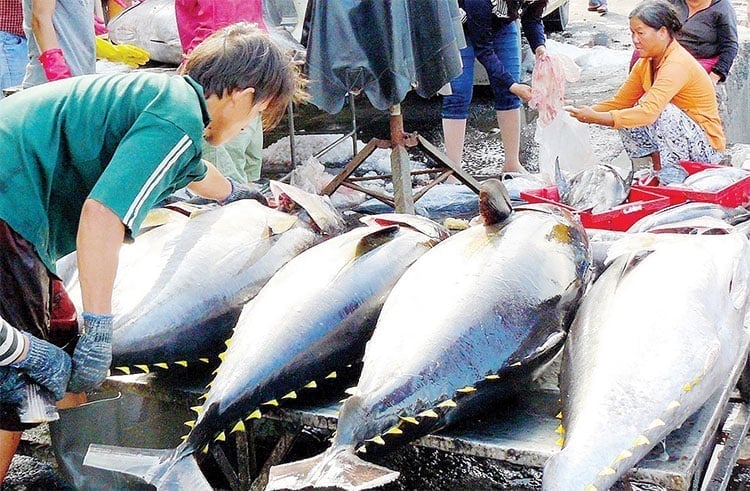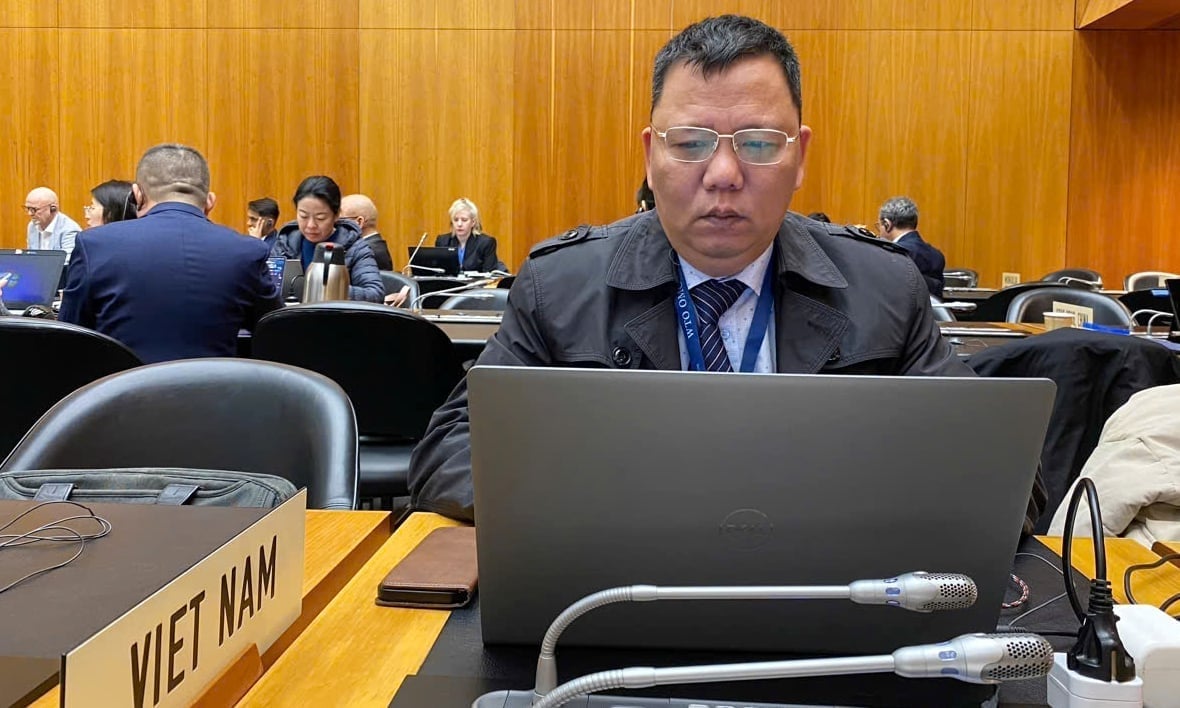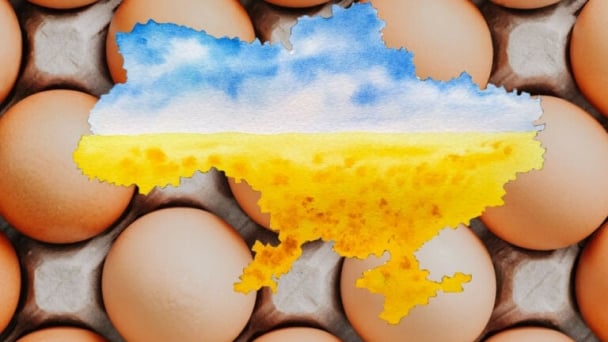May 21, 2025 | 07:14 GMT +7
May 21, 2025 | 07:14 GMT +7
Hotline: 0913.378.918
May 21, 2025 | 07:14 GMT +7
Hotline: 0913.378.918
The Vietnam SPS Office recently received a notification from the EU regarding the amendment of Annex III of Regulation (EC) No 853/2004, concerning hygiene regulations for frozen tuna products.
Accordingly, transport vessels must meet design requirements and support a real-time continuous monitoring system that records the brine temperature on board using electronic temperature measuring devices. Consequently, the system will maintain the core temperature of the product at -18 degrees Celsius. In addition, the regulation permits remote real-time monitoring of the brine temperature.

Tuna is one of Vietnam’s key export items. Photo: Minh Hieu.
Food business operators must provide access to brine temperature data upon request by relevant authorities. In addition, they are required to develop a freezing capacity plan for their transport vessels.
Subsequently, competent authorities of the exporting country must inspect the freezing plan and verify the freezing capacity of the transport vessels.
The EU also noted that whole tuna products (belonging to the Thunnus and Katsuwonus genera) may be subject to a continuous freezing treatment in brine at a core temperature of -18 degrees Celsius, provided certain conditions are met, including freezing time, cleaning with seawater, salt concentration in the brine, and the final freezing temperature:
If the process involves freezing tuna directly in brine, operators must ensure the fish reaches a core temperature below 0°C within 24 hours and achieves -18 degrees Celsius within a total of 96 hours from the time they place the first fish in the brine tank;
If operators pre-chill the tuna using clean seawater before placing in brine, the EU requires that the tuna and chilled seawater must reach 3 degrees Celsius within 6 hours and 0 degrees Celsius within 16 hours. Additionally, the total pre-chilling process in clean seawater must not exceed 72 hours from the time the first tuna is placed in the tank. After transferring the tuna to brine, operators must reduce the core temperature from 0 to -18 degrees Celsius within a maximum of 72 hours.
Ngo Xuan Nam, Deputy Director of the Vietnam SPS Office, stated that the EU has established its reputation as one of the world’s most stringent markets in terms of food safety regulations.
For seafood products, including frozen tuna—a strategic export item for Vietnam—compliance with the EU’s legal framework is both a requirement and a testament to product quality, business professionalism, and integration capacity.

Ngo Xuan Nam at the recent SPS/WTO Committee meeting in Switzerland. Photo: SPS Vietnam.
The EU has established its hygiene and food safety regulations for frozen tuna products based on two key legal documents: Regulation (EC) No 852/2004 and Regulation (EC) No 853/2004 issued by the European Parliament and the Council.
Accordingly, Regulation (EC) No 852/2004 establishes general principles on food hygiene, applicable throughout the entire production and processing chain, from raw material harvesting to the final product.
Production facilities must implement the Hazard Analysis and Critical Control Points (HACCP) system and ensure hygiene across various factors, including factory organization, equipment, water sources, personnel, and overall operational processes.
On the other hand, Regulation (EC) No 853/2004 outlines detailed requirements for food of animal origin, including seafood. The EU has also recently announced its plans to amend this document.
For frozen tuna, the regulation requires operators to immediately freeze the fish after harvesting, with a core temperature of -18 degrees Celsius or lower. In addition, they cannot thaw and refreeze the tuna. Tuna fishing vessels, as well as pre-processing and processing facilities and cold storage units, will be subject to inspections and assigned an EU registration number. Products must meet this prerequisite to be eligible for import into the European market.
In addition to hygiene controls at production facilities, the EU places a strong emphasis on microbiological and chemical criteria in products.
Regulation (EC) No 2073/2005 on microbiological criteria for food establishes strict limits for histamine levels—a biogenic amine that can naturally occur in tuna without suitable preservation measures. Every frozen tuna export shipment to the EU must be tested to ensure that histamine levels do not exceed 100 ppm in order to prevent potential poisoning risks for consumers.
Additionally, with the aim of preventing commercial fraud and protecting public health, the EU has imposed additive limits for tuna since October 2022. Three commonly used antioxidants—ascorbic acid (E300), sodium ascorbate (E301), and calcium ascorbate (E302)—are permitted but must not exceed 300 mg/kg of product.
The increasingly stringent requirements on information transparency and traceability also pose a significant impact on hygiene standards. Notably, regulation (EC) No 1169/2011 requires all food products sold in the market to have clear and accurate labeling.
Mandatory information for frozen tuna products includes: product name, scientific name, catch date, freezing date, origin, preservation method, facility registration number, and usage instructions if necessary. Each shipment must be accompanied by certification documents and proof of legally sourced raw materials.
Most recently, the EU announced that beginning in January 2026, it will officially implement the CATCH electronic system. This is a platform for managing and verifying catch certificates to eliminate products originating from illegal, unreported, or unregulated (IUU) fishing.
“The EU’s legal framework stands as a highly technical challenge and reflects a trend toward transparent governance and environmental responsibility. Meeting all these requirements demands that businesses invest in processing technologies and cold chain equipment, as well as in quality management systems, workforce training, and strong linkages with input supply chains,” said Ngo Xuan Nam.
According to the SPS Vietnam Office, Vietnamese businesses should adopt a proactive approach and view these new requirements as opportunities to upgrade their production systems to international standards, enhance competitiveness, and expand market access.
“Businesses cannot rely solely on price and output if they aim to extend their reach. Quality, safety, and transparency are the three pillars that will retain EU consumers,” Deputy Director Nam emphasized, calling on regulatory agencies and relevant industry associations to contribute feedback to the SPS Vietnam Office before May 20 for consolidation and submission to the EU.
In addition to hygiene regulations pertaining to frozen tuna products, the EU has also announced revisions and additions to several provisions in Annex III of Regulation (EC) No 853/2004 concerning slaughterhouses for ungulates and processed products such as gelatin and collagen.
Translated by Nguyen Hai Long

(VAN) Oliyar, a prominent Ukrainian oil and fat manufacturer, has revealed plans to build a farm for 2.3 million laying hens in the Lviv region. The additional production quantities promise to change the competitive landscape of the egg market of the Eastern Europe region.

(VAN) On May 15, Ministry of Agriculture and Environment of Vietnam hosted the 'Connecting Vietnam - Germany agricultural, forestry and fishery trade' seminar in Berlin, Germany.

(VAN) In the face of counterfeit and imitation products, Khanh Hoa Salanganes Nest Company hopes for the prompt completion of the legal framework, strict enforcement against violations, and protection of the bird’s nest brand.

(VAN) Japan's efforts to lower the price of rice through the release of its stockpile may finally be making some progress, albeit at a snail's pace.

(VAN) U.S. tariffs are not only a 'shock', but also an opportunity for Vietnamese businesses to renew their mindset toward comprehensive development.

(VAN) As Bac Giang lychee enters the harvest season, Minister Do Duc Duy expects that the fruit will contribute greatly to agricultural exports due to standardized production and deep processing.

(VAN) Consumers have shown a preference for free-range eggs, but those farming systems are more vulnerable to biosecurity risks like bird flu.